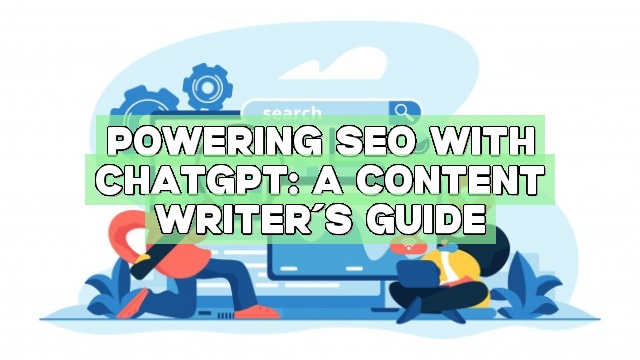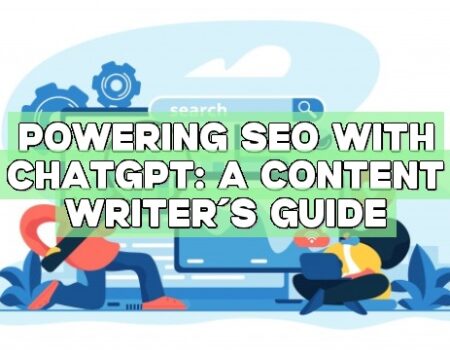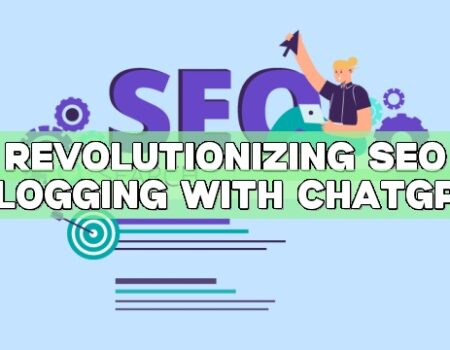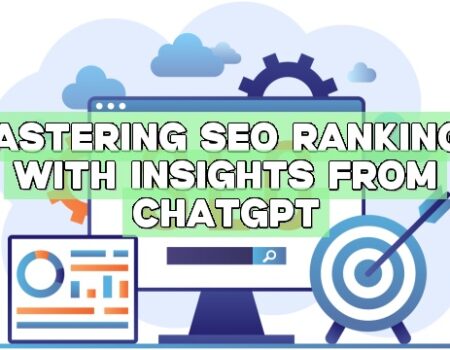As a content writer, you already understand the importance of providing engaging, informative, and valuable content to your target audience. But what if we told you there’s a way to optimize your content further using artificial intelligence? That’s right – ChatGPT prompts can revolutionize the way you create content and improve your website’s search engine ranking.
By utilizing ChatGPT prompts for SEO content writing, you can streamline your content creation process, generate engaging and SEO-friendly content, and boost organic traffic to your website. In this guide, we’ll explore the benefits of using ChatGPT prompts and provide you with actionable strategies for leveraging this powerful tool to enhance your website’s performance.
Key Takeaways:
- ChatGPT prompts can improve website performance and drive organic traffic.
- ChatGPT is a powerful language model that can be leveraged for content writing.
- Using ChatGPT prompts can effectively improve SEO content writing.
Understanding ChatGPT and its Capabilities
ChatGPT is a cutting-edge language model that has revolutionized the field of natural language processing. Developed by OpenAI, ChatGPT is an AI-based tool that can process large amounts of text data and generate human-like responses. It is built on the GPT-2 and GPT-3 frameworks and is capable of understanding complex language structures.
One of the unique aspects of ChatGPT is its ability to learn from context and generate coherent responses. It does this by analyzing patterns in the input text and applying statistical models to predict the most likely response. ChatGPT can also be fine-tuned for specific tasks, such as language translation or content writing.
As a content writer, utilizing ChatGPT can be a gamechanger in terms of generating quality content quickly and efficiently. With its advanced language processing abilities, it can assist in creating SEO-friendly content and optimizing it for search engines. By understanding how to leverage ChatGPT prompts, content writers can improve website performance and drive organic traffic.
Leveraging ChatGPT Prompts for SEO Content Writing
ChatGPT prompts can be a valuable tool for SEO content writers. These prompts are designed to generate responses that align with specific SEO goals, such as improving website performance and driving traffic. By leveraging ChatGPT prompts, content writers can create compelling content that resonates with their target audience while also maximizing the visibility of their website.
There are several types of ChatGPT prompts that can be used for SEO content writing. For example, keyword prompts can provide suggestions for high-ranking keywords and help content writers identify relevant keywords to include in their content. Content prompts can be used to generate ideas for blog posts, product descriptions, and other types of content. On-page SEO prompts can assist in optimizing content for search engines, while user experience prompts can enhance the overall experience of website visitors.
Using ChatGPT prompts for SEO content writing involves a few key steps. First, it is important to select the right type of prompt for the intended outcome. Next, the prompt should be crafted with precision to ensure that it effectively conveys the desired information to the language model. Finally, the resulting response should be reviewed and refined as needed to ensure that it aligns with the overall SEO strategy.
Leveraging ChatGPT Prompts for Keyword Research
Keyword research is a critical aspect of SEO content writing, and ChatGPT prompts can help simplify the process. ChatGPT can provide relevant keyword suggestions based on a given topic or phrase. By using these keyword prompts, content writers can identify high-ranking keywords to include in their content and improve the search engine visibility of their website.
Leveraging ChatGPT Prompts for Content Creation
Creating engaging content that resonates with the target audience is key to SEO success, and ChatGPT prompts can be used to generate ideas for different types of content. Content prompts can be used to generate ideas for blog posts, product descriptions, and other types of content. By leveraging ChatGPT prompts for content creation, content writers can ensure that their content is optimized for SEO and resonates with their target audience.
Leveraging ChatGPT Prompts for On-Page SEO Optimization
On-page SEO optimization involves optimizing different elements of a website to improve its search engine visibility. ChatGPT prompts can be used to optimize content structure, meta descriptions, headers, and other on-page elements that contribute to SEO success. By using ChatGPT prompts for on-page optimization, content writers can ensure that their website is highly visible to search engines.
Overall, ChatGPT prompts can be a valuable tool for SEO content writers. By leveraging these prompts, content writers can create compelling content that resonates with their target audience and drives organic traffic to their website.
Crafting Effective Prompts for SEO Optimization
Utilizing ChatGPT prompts for SEO optimization can significantly improve the performance of a website. To create effective prompts, it is essential to use the right keywords, provide context, and structure them effectively.
1. Use the Right Keywords
When crafting prompts, it is crucial to identify and use keywords that are relevant to the content and the target audience. Including popular and highly searched keywords can significantly improve website ranking and drive more organic traffic. ChatGPT can assist in generating relevant keywords by analyzing search trends and user behavior.
2. Provide Context
ChatGPT prompts for SEO optimization require context to generate accurate and relevant responses. The prompts must provide sufficient information about the content, keywords, and target audience. Providing context can also ensure that the generated content is aligned with the brand’s messaging and voice.
3. Structure Prompts Effectively
Structured prompts allow ChatGPT to generate more accurate and relevant responses for SEO optimization. For instance, breaking down long sentences and complex tasks into shorter prompts can ensure that the generated content is more concise and easy to read. Structured prompts also allow ChatGPT to generate responses that are in line with the brand’s messaging and voice.
4. Refine Prompts over Time
Refining prompts over time is essential to improve the effectiveness of ChatGPT for SEO optimization. Analyzing user feedback and data on website performance can help identify areas of improvement and refine prompts accordingly. Regularly refining prompts can also ensure that the generated content is always up to date and aligned with the brand’s messaging and voice.
ChatGPT Prompt Examples for Keyword Research
Keyword research is a critical aspect of SEO content writing. To ensure that your website is driving organic traffic, it is essential to target and use the right keywords in your content. ChatGPT prompts can help with identifying relevant keywords for your website.
Here are some ChatGPT prompt examples for keyword research:
- “What are some high-ranking keywords for my niche?”
- “Which long-tail keywords should I target for my website?”
- “What are the top-performing keywords for my competitors?”
By using these prompts, you can generate relevant keyword suggestions and identify high-ranking keywords that can boost your website’s performance. You can also tweak the prompts to suit your needs, such as specifying your niche or competitor.
ChatGPT prompts for keyword research can help save time and effort in identifying the right keywords for your website. With the right keywords, you can improve your search engine rankings and drive more organic traffic to your website.
Generating Engaging SEO Content with ChatGPT
Creating engaging and optimized content is essential for driving organic traffic to your website. Using ChatGPT prompts can help you generate high-quality content that is optimized for search engines. Here are some examples of prompts you can use for different types of content:
Blog Posts
Blog posts are an excellent way to drive organic traffic to your website. Use ChatGPT prompts to generate ideas and structure your posts effectively. Here are some examples:
What are the benefits of using ChatGPT for SEO content writing?
How does long-tail keyword optimization improve blog post ranking?
Product Descriptions
Product descriptions must be informative and engaging to persuade customers to make a purchase. Use ChatGPT prompts to create descriptions that highlight the features and benefits of your products. Here are some examples:
What are the key features of [product name]?
How does [product name] solve customers’ problems?
Landing Pages
Landing pages must be optimized to convert visitors into customers. Use ChatGPT prompts to create headlines, subheadings, and body copy that engage visitors and highlight the benefits of your product or service. Here are some examples:
What are the benefits of [product or service name]?
Why is [product or service name] the best solution for [target audience]?
By using ChatGPT prompts, you can generate SEO-friendly content that engages your audience and drives organic traffic to your website. Remember to refine your prompts and analyze your data to continuously improve your content.
Incorporating Long-Tail Keywords with ChatGPT Prompts
Long-tail keywords are essential for improving website performance and driving organic traffic. However, identifying relevant long-tail keywords can be a challenging task. This is where ChatGPT prompts come in handy. By using ChatGPT prompts, you can generate long-tail keyword suggestions and incorporate them effectively into your content.
Here are some examples of ChatGPT prompts for long-tail keyword optimization:
| Prompt Type | Prompt Example |
|---|---|
| Question-based | “What are the benefits of using [product/service] for [specific audience]?” |
| Comparison-based | “[Product A] vs [Product B]: Which one is better for [specific purpose/audience]?” |
| Location-based | “Best [product/service] in [city/state]” |
By using these prompts, you can discover long-tail keywords that are relevant to your business and include them in your content to improve your website’s visibility and search engine ranking.
ChatGPT Prompts for On-Page SEO Optimization
On-page SEO is essential for optimizing a website’s visibility and ranking on search engines. ChatGPT prompts can be used to create effective on-page SEO content. Here are some prompt examples for optimizing various on-page elements:
| On-page Element | Prompt Example |
|---|---|
| Meta Description | Write a meta description using the target keyword that compels users to click and provides a clear idea of the content on the page. |
| Header Tags | Create an H1 header using the target keyword that accurately reflects the page content. Include at least two H2 headers with relevant LSI keywords. |
| Image Alt Text | Provide descriptive alt text for all images on the page that include the target keyword. Ensure alt text accurately reflects the image content. |
| Internal Linking | Include at least two internal links on the page that link to other relevant pages on the site. Use anchor text that includes the target keyword. |
| Keyword Density | Ensure the target keyword appears at least once in the first 100 words of the page’s content. Maintain a keyword density of 1-2% throughout the content. |
By following these ChatGPT prompts, you can effectively optimize your website’s on-page elements and improve its visibility in search engine results.
Enhancing User Experience with ChatGPT Prompts
When it comes to SEO, enhancing user experience is key. By leveraging ChatGPT prompts, you can generate content that is not only optimized for search engines but also engaging and user-friendly. Here are some prompt examples for improving user experience on your website:
User-friendly Content
ChatGPT prompts can assist in creating user-friendly content by generating prompts that focus on readability, tone, and style. For instance, prompts can help identify complex sentences that may be difficult for users to understand and suggest alternative phrasing. Additionally, prompts can help ensure that the content is written in a conversational tone and is easily scannable.
Optimizing Website Navigation
Website navigation plays a vital role in user experience. ChatGPT prompts can generate prompts that address website navigation, such as optimizing the placement of menus and the use of headers. By creating a clear and intuitive website structure, users are more likely to stay on your website and engage with your content.
Improving Overall Engagement
ChatGPT prompts can also help improve overall engagement on your website. For example, prompts can suggest different types of multimedia content, such as images, videos, or infographics, that can help increase user engagement. Additionally, prompts can generate ideas for interactive features, such as quizzes or surveys, that can help users stay engaged and interested in your website.
Overcoming Challenges with Complex Tasks
While ChatGPT prompts can be an effective tool for SEO content writing, they may not always provide accurate or relevant responses for complex tasks. However, there are ways to overcome these challenges by breaking down complex tasks into longer prompts and providing additional context. Here are some tips:
- Break down complex tasks: When dealing with complex tasks, it’s essential to break them down into smaller, more manageable prompts. This will help ChatGPT provide more accurate responses and reduce the chance of errors.
- Provide background information: To generate accurate responses, provide as much background information as possible. This could include industry-specific jargon, technical terms, or historical context.
- Include specific details: Make sure to include specific details about the task at hand. This could include desired outcomes, target audience, or any unique challenges.
By following these tips, you can ensure that your ChatGPT prompts generate accurate and relevant responses, even for complex tasks.
ChatGPT Prompt Best Practices for SEO Success
Implementing ChatGPT prompts for SEO content writing can be a game-changer for your website’s performance. Here are some best practices to help you succeed:
Refine Your Prompts
Ensure your prompts are specific, relevant and provide enough context for ChatGPT to generate accurate responses. Experiment with different prompt strategies and tailor them to your target audience.
Optimize Your Responses
Review the generated responses and edit them to improve the quality and relevance of the content. Include relevant keywords and ensure that the tone and style of the content aligns with your audience and brand.
Continuous Improvement
Use insights from data analysis and user feedback to continuously improve your prompts, responses and content. Staying up-to-date with industry trends and algorithm updates can also help you stay ahead of the competition.
Experimentation
Don’t be afraid to experiment with different prompts, keywords, and content formats to find what works best for your website and audience. Use A/B testing to evaluate the effectiveness of different strategies.
Stay Compliant
Ensure that your content and website comply with industry standards and legal requirements. Avoid using ChatGPT to generate spammy or low-quality content that could harm your website’s reputation and ranking.
By following these best practices, you can leverage ChatGPT prompts for SEO success and improve your website’s performance and organic traffic.
Conclusion
Using ChatGPT prompts for SEO content writing can greatly improve website performance and drive organic traffic. By understanding ChatGPT and its capabilities, crafting effective prompts for SEO optimization, and generating engaging SEO content with ChatGPT, content writers can enhance their website’s user experience and achieve SEO success.
It is important to incorporate long-tail keywords with ChatGPT prompts and utilize them for on-page SEO optimization. Additionally, when facing challenges with complex tasks, breaking them down into longer prompts and providing background information can generate accurate responses.
Following ChatGPT prompt best practices such as refining prompts, optimizing responses, and continuously improving content based on user feedback and data analysis can lead to long-term SEO success.
In conclusion, ChatGPT is a valuable tool for content writers looking to optimize their SEO content. By implementing the strategies outlined in this guide, readers can leverage ChatGPT prompts to boost their website’s performance and drive organic traffic.
FAQ
Q: What is ChatGPT?
A: ChatGPT is a powerful language model developed by OpenAI that utilizes natural language processing to generate human-like responses. It can be used for a wide range of tasks, including content writing.
Q: How can ChatGPT help improve website performance?
A: ChatGPT can help improve website performance by generating high-quality, SEO-friendly content. By utilizing ChatGPT prompts for SEO content writing, websites can attract organic traffic and improve their ranking on search engine results pages.
Q: What are ChatGPT prompts?
A: ChatGPT prompts are input phrases or questions provided to the language model to generate responses. These prompts can be tailored to specific tasks, such as keyword research, content generation, or on-page SEO optimization.
Q: How can ChatGPT prompts be used for keyword research?
A: ChatGPT prompts can assist in keyword research by providing relevant keyword suggestions. By inputting prompts related to a specific topic or industry, ChatGPT can generate a list of keywords that can help optimize content for SEO purposes.
Q: Are there specific best practices for crafting effective ChatGPT prompts?
A: Yes, crafting effective ChatGPT prompts involves using the right keywords, providing context, and structuring the prompts in a way that elicits accurate and informative responses. It’s important to experiment and refine prompts to achieve optimal results.
Q: Can ChatGPT prompts be used for on-page SEO optimization?
A: Yes, ChatGPT prompts can be utilized for on-page SEO optimization. By providing prompts that address content structure, meta descriptions, headers, and other on-page elements, websites can enhance their SEO efforts and improve their search engine visibility.
Q: How can ChatGPT prompts enhance user experience?
A: ChatGPT prompts can help enhance user experience by generating user-friendly content, optimizing website navigation, and improving overall engagement. By tailoring prompts to focus on user experience, websites can create a more satisfying and interactive environment for visitors.
Q: What are some best practices for using ChatGPT prompts for complex tasks?
A: When dealing with complex tasks, it’s important to break them down into longer prompts and provide sufficient background information. This helps generate accurate and comprehensive responses from ChatGPT.
Q: How can ChatGPT prompts contribute to SEO success?
A: ChatGPT prompts can contribute to SEO success by generating optimized content, improving website performance, and driving organic traffic. By implementing best practices and continuously refining prompts, websites can achieve better search engine rankings and attract more visitors.









